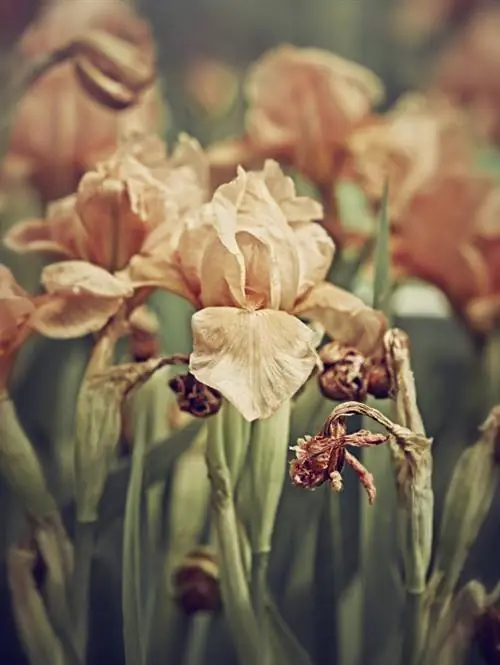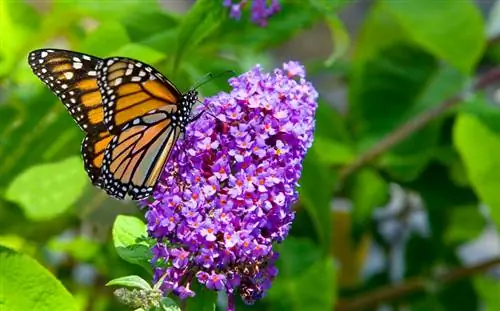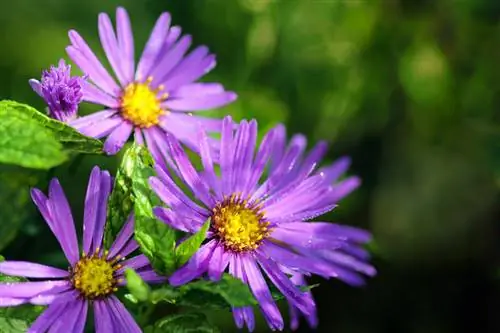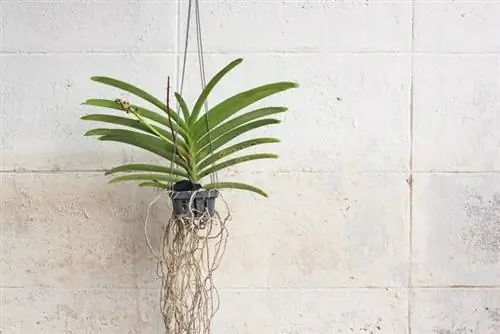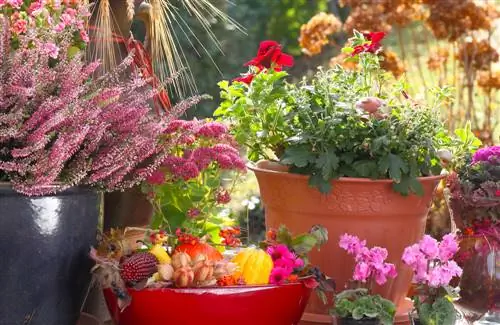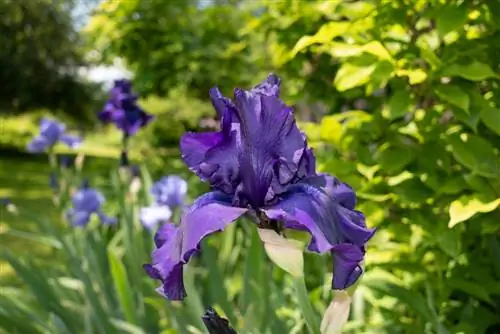- Author admin [email protected].
- Public 2023-12-16 16:46.
- Last modified 2025-01-23 11:20.
Since the irises in Central Europe are generally winter-hardy, you do not need to overwinter the plants in a protected manner, unlike other similarly exotic-looking flowering plants. However, care in autumn that is tailored to the plant's needs doesn't hurt if you want to see lots of flowers again the following year.
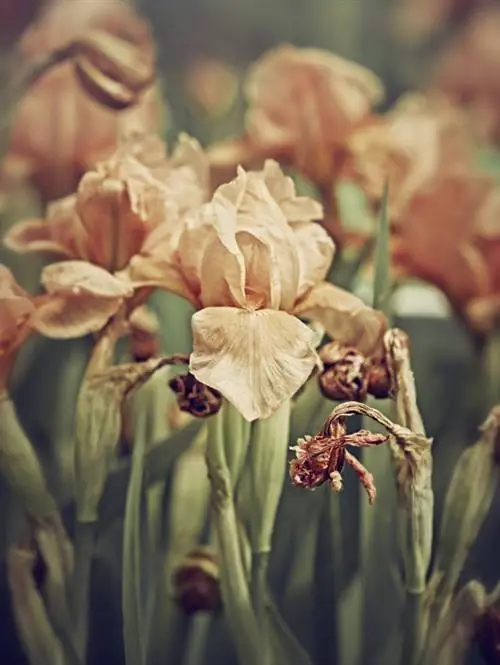
Which autumn care is recommended for iris plants?
In autumn, iris plants can be propagated and rejuvenated by division. To do this, divide the root rhizomes with a clean knife and plant young side shoots; Remove wilted inflorescences and loosen the soil with compost.
The perfect time to plant irises in the garden
Directly after flowering is a good time to plant irises if you want to establish them in your own garden by planting rhizomes. If you plant the thick root tubers in the loosened soil in a sunny location by September or October at the latest, then the fine roots can spread through the soil before winter and thus ensure flowering success in the first year of growth.
Dividing irises in autumn: promoting flowering and rejuvenating plant populations
Autumn is the crucial season for successful propagation of the iris: after all, about 10-12 weeks after flowering, not only do the seeds ripen, but autumn also offers optimal conditions for division rapidly growing root rhizomes. When propagating and rejuvenating you should:
- If possible, only replant the young side shoots
- cut the rhizome parts (€13.00 on Amazon) with a clean knife and thus promote plant he alth
- cut the individual rhizome parts into pieces no smaller than finger length
While some types of irises produce many magnificent flowers even after years in the same location, others require transplanting every three to four years in order to maintain their flowering.
The right autumn care for he althy iris populations
There is actually no real pruning of the leaves like with other plants with irises, as they need the energy from the leaf mass for the next growing season. However, the wilted inflorescences are usually cut off for visual reasons if you do not want to sow the seeds yourself. You should avoid covering the iris with mulch, otherwise it can lead to rot and mold formation.
Tips & Tricks
The iris should no longer be fertilized with artificial fertilizer in autumn, but you can carefully loosen the soil around the plant with a hoe and add some seasoned compost as a nutrient reserve for the following year.

